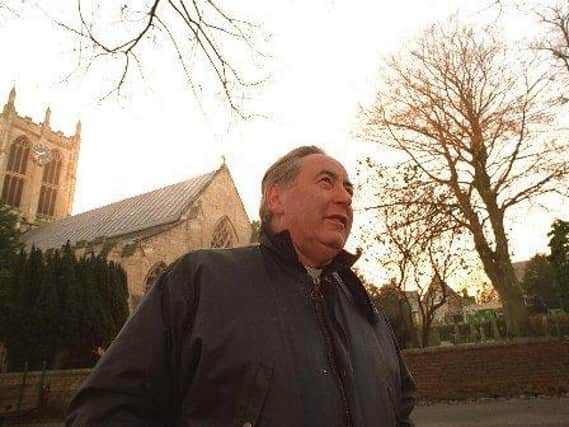Disgraced clergyman, 84, died weeks after being sentenced to 12 years in jail for sexually abusing boys and young men, inquest hears


A jury at Hull Crown Court found the Rev Canon Terence Grigg, 84, guilty of 14 offences between the mid-1980s and early 1990s on August 9 2018.
During the trial jurors heard the ex-clergyman had “identified” his four victims, who were all vulnerable “in some way” and had used “that vulnerability for his own sexual gratification”.
Advertisement
Hide AdAdvertisement
Hide AdAn inquest on Monday heard that the retired Rector of St Mary’s, Cottingham, died at Hull Royal Infirmary on August 26 2018 from multiple organ failure, caused by a heart attack and underlying heart disease.
Grigg, who had homes in North Yorkshire and Devon, had suffered a previous heart attack and had a pacemaker fitted.
A friend noticed his health deteriorate as the trial drew to a close and said when the sentence was delivered Grigg “looked beaten down, his head down and shoulders hunched”.
The hearing was told Grigg was kept overnight for observation in Hull Prison’s well-being unit on August 17, after suffering from nausea and vomiting.
Advertisement
Hide AdAdvertisement
Hide AdHe became unwell again on August 23, and the following day it was decided he would be sent for a hospital assessment on August 25, as he wasn’t complaining of chest pain, or short of breath.
“Frail” Grigg was taken handcuffed in a wheelchair to hospital, where he died the following day.
A Prisons and Probation Ombudsman report concluded that the decision to handcuff Grigg to a prison officer on a long chain on August 25 was “unjustified” - having previously raised similar concerns with the jail previously about the use of restraints - and made recommendations to improve inmates' healthcare.
Coroner Prof Paul Marks said not removing the restraint “up till the moment it was terminal” could be considered “inhumane” and the chance of him absconding would have been “approaching nil”.
Advertisement
Hide AdAdvertisement
Hide AdHe said: "The gentleman wasn't fit for a haircut let along any kind of curative treatment.
"It seems eminently wrong that he had any restraint of any description."
The jail’s head of residence and safety Gary Sword said the concerns had been taken on board, adding: "Over the last 12 months definitely prisoners who don't need to be restrained aren't restrained when they leave the prison."
The inquest continues.